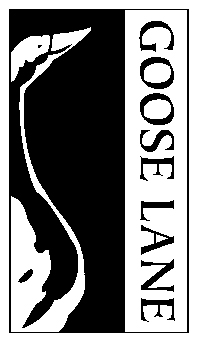Happy holidays, readers! It’s the most wonderful time of the year here at Goose Lane, and we’d like to share the cheer with all of you! Take a look at our blog over the next month for holiday tips, festive clips, and helpful gift ideas from our staff and friends.
Remember: if you're shopping online, all of our books are 20% off online, just use discount code NOEL19 with every order!
In the first year of its operation, Internment Camp B at Ripples, New Brunswick incarcerated German and Austrian Jewish refugees dispatched from Britain. In May 1940, fearful that the refugees were agents of the Nazis they'd fled, the British government sent thousands of men to Canada to be interned as "dangerous enemy sympathizers." After the refugees were finally released in 1941, Camp B held Canadian citizens who were suspected of opposing the war effort — including the prominent opponent of conscription and Mayor of Montreal Camillien Houde, Canadians of German and Italian descent, and homegrown fascists such as Adrien Arcand — as well as captured German and Italian merchant mariners.
In this comprehensive illustrated account of Camp B, Andrew Theobald examines the daily lives and tribulations of those imprisoned behind the barbed wire. "Dangerous Enemy Sympathizers" also scrutinizes the troubling context that led to the internment of both refugees and Canadian citizens, the debates over the ethics of internment inside and outside the camp, and the role of the camps in shaping government policy towards immigration and the post-war powers of the Canadian state.
"On the morning of July 7, 1944, a loud knock came on the door of Barbara Wuhr’s Grand Lake home. Alone in the house, with her husband on shift in a Minto coal mine, Mrs. Wuhr opened the door to two swarthy men, presumably local Maliseet peddlers. The younger looking of the two, who spoke English with a noticeable accent, politely asked for bread, butter, and salt, promising to return to pay her tomorrow. Happy to assist her neighbours, Mrs. Wuhr readily agreed.
The next day came another knock on the door. This time, however, the visitors were Mounties seeking information on two escapees from the nearby Ripples Internment Camp. Mrs. Wuhr immediately identified the two men, Italian merchant mariners Tullio Festa and Cesare Lubrano, from official photographs. What were two European sailors doing in the forests of central New Brunswick?
The Second World War was on the province’s metaphorical doorstep, and no part of New Brunswick experienced the conflict more viscerally than the area surrounding the small Sunbury County village of Ripples, site of Camp B, the only internment camp in the Maritimes. This book presents an account of the history of the Ripples camp from 1940 to 1945. That history features a memorable series of events and a diverse cast of characters too extraordinary for fiction. Above all, however, the camp represented a suspension of basic civil liberties that can never be justified, which raises important questions — as relevant today as they were decades ago — about how much power the state should be granted in the interests of national security. What are the limits to espousing the views of the enemy in wartime? As a preventive measure against the possibility of subversion, was internment a success or a failure? These questions are prompted by stories that feature a great deal of intolerance — intolerance that, by and large, was overcome. Blanket assertions about whole groups of people were demolished through consistent interaction, and often replaced by mutual respect. Ultimately, the Ripples Internment Camp, established during humanity’s worst moments, demonstrated New Brunswick and its people at their best. For all the many abhorrent elements in this story, the history of the camp provides an important case study of the province’s multifaceted role in the Second World War, and further helps to explain the forging of a brighter postwar future.
On behalf of the British government, Canada incarcerated 31,465 combatant prisoners of war and 4,170 enemy merchant mariners and civilians during the war. Ottawa further interned another 174 enemy merchant mariners and 2,241 civilians — figures that do not include the infamous forced evacuation and internment of British Columbia’s Canadian Japanese population. Thousands of these men experienced Canadian internment in Ripples, New Brunswick."
Listen to Andrew Theobald's interview with the CBC



